Something to look forward to: CES 2021 will have a strong focus on mobile hardware, with competitors AMD and Nvidia set to have their own set of announcements a day after, Intel was first to strike with a teaser of Rocket Lake-S, its 11th-gen Core desktop CPUs, and upcoming hardware on both desktop and laptop. Intel’s CES 2021 keynote just wrapped up and here are a few of our thoughts on what was shown off (we were pre-briefed by Intel on these).
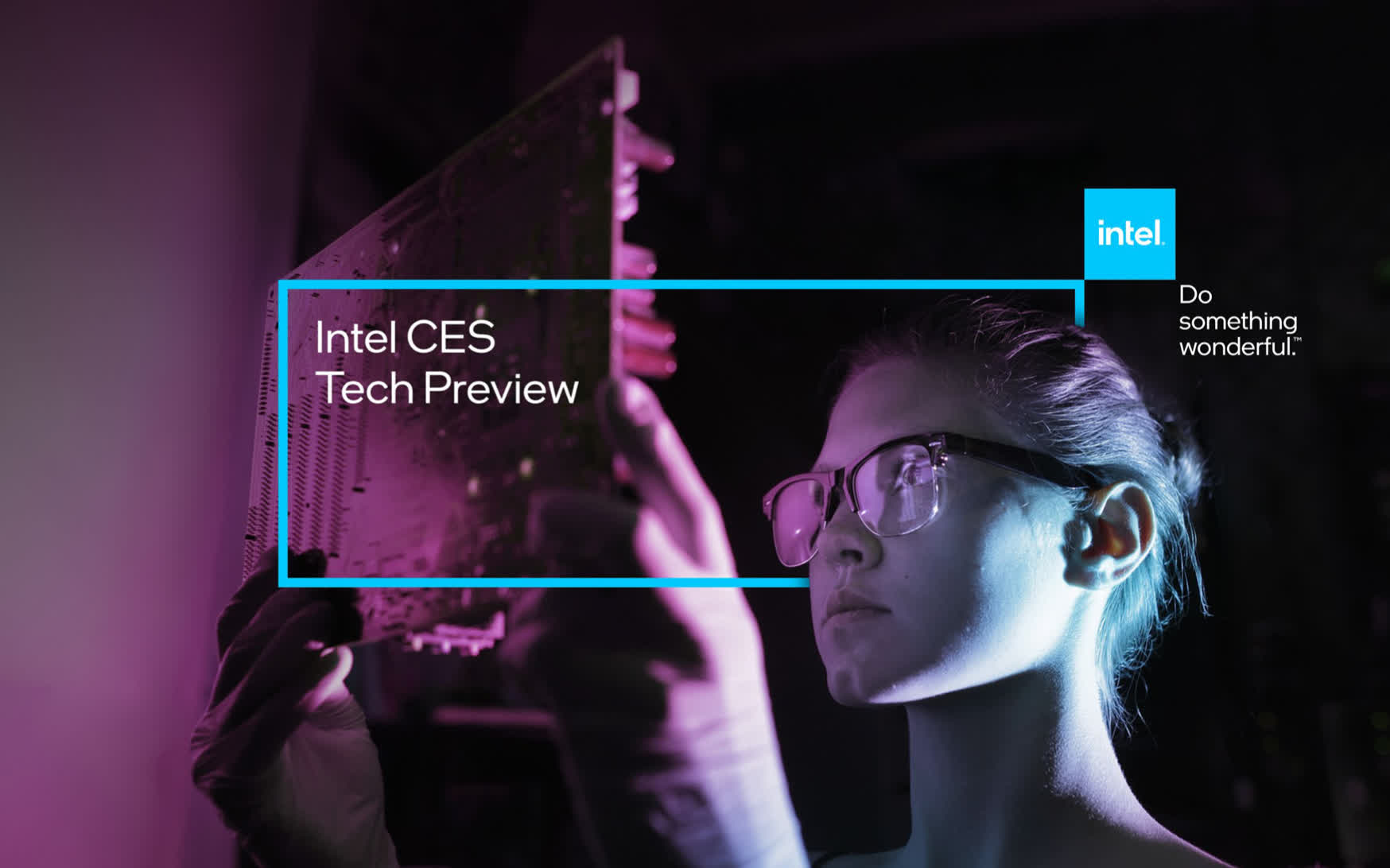
Core i9-11900K and Rocket Lake-S
We'll begin with the end of Intel’s presentation and talk about their teaser for 11th-gen desktop processors, Rocket Lake-S. There have been a ton of leaks and rumors surrounding these parts, but Intel isn't ready to unveil the full line-up today -- we’re expecting that to happen sometime in March as it seems these parts aren’t yet finalized. However Intel was willing to discuss some of the features and deliver a small preview of the Core i9-11900K.
These are the basics: a new Core architecture is being used, and this is expected to be a backport of Intel’s Sunny Cove architecture to 14nm, though they aren’t talking specifics on this regard. Rocket Lake-S brings up to a 19% IPC improvement according to Intel. There’s also going to be a new integrated graphics core, with up to 50% better performance.
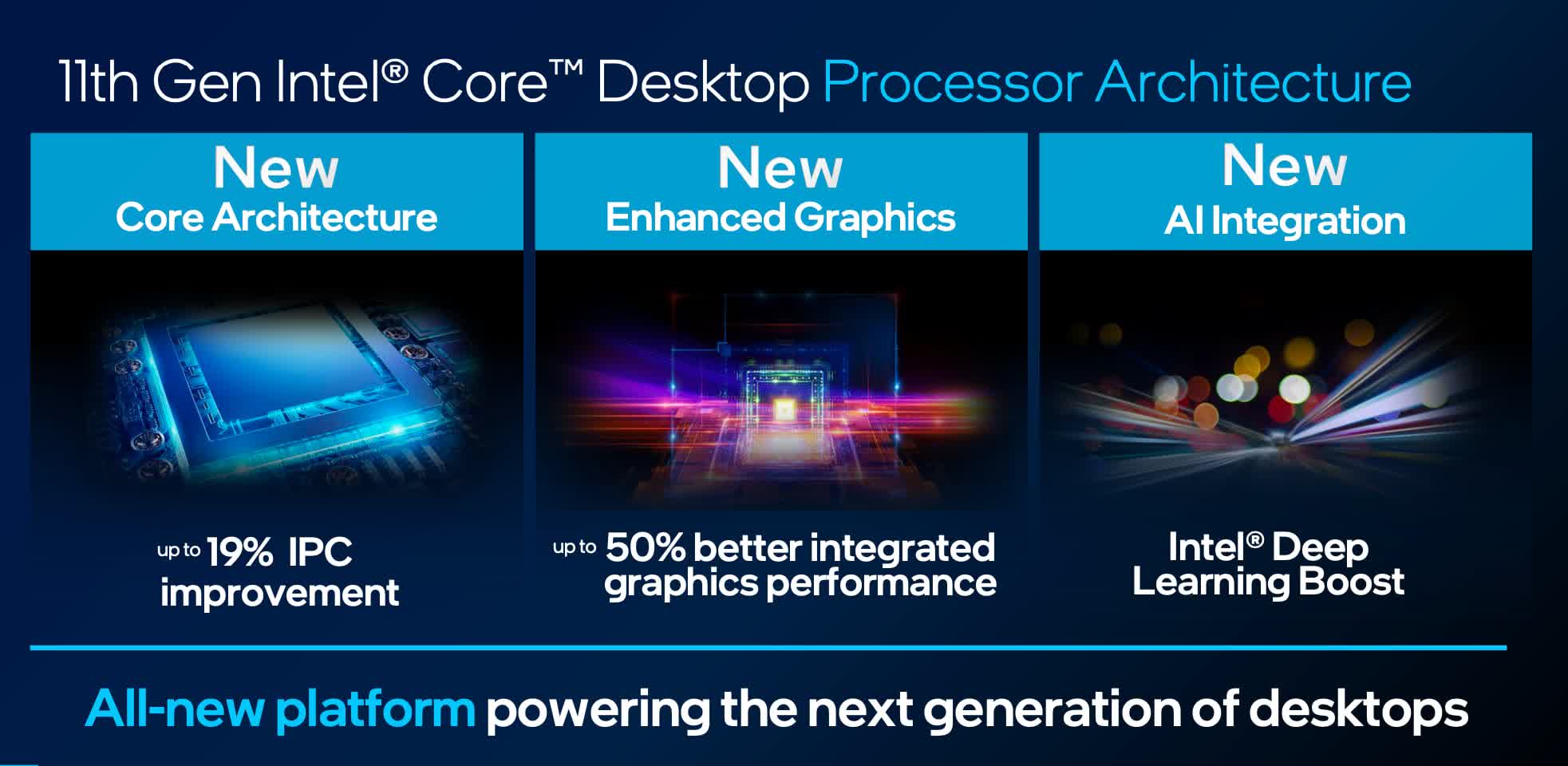
You can see the full breakdown of features below, which is similar to what we've seen from Intel’s mobile processors using a variant of this architecture. Faster memory support, DDR4-3200, and new accelerated media capabilities like AV1 decoding, to name a few.
What’s interesting to see is Intel confirming the core configuration and clock speed for the 11900K. We’re getting 8 cores and 16 threads -- a drop down from 10 cores -- but clock speeds remain high at up to 5.3 GHz single-core and 4.8 GHz all-core turbo. These are with Thermal Velocity Boost, but still there's been no decrease to peak clock speeds from the new architecture being backported onto an existing node: the 10900K does up to 5.3 GHz, and so does the 11900K.
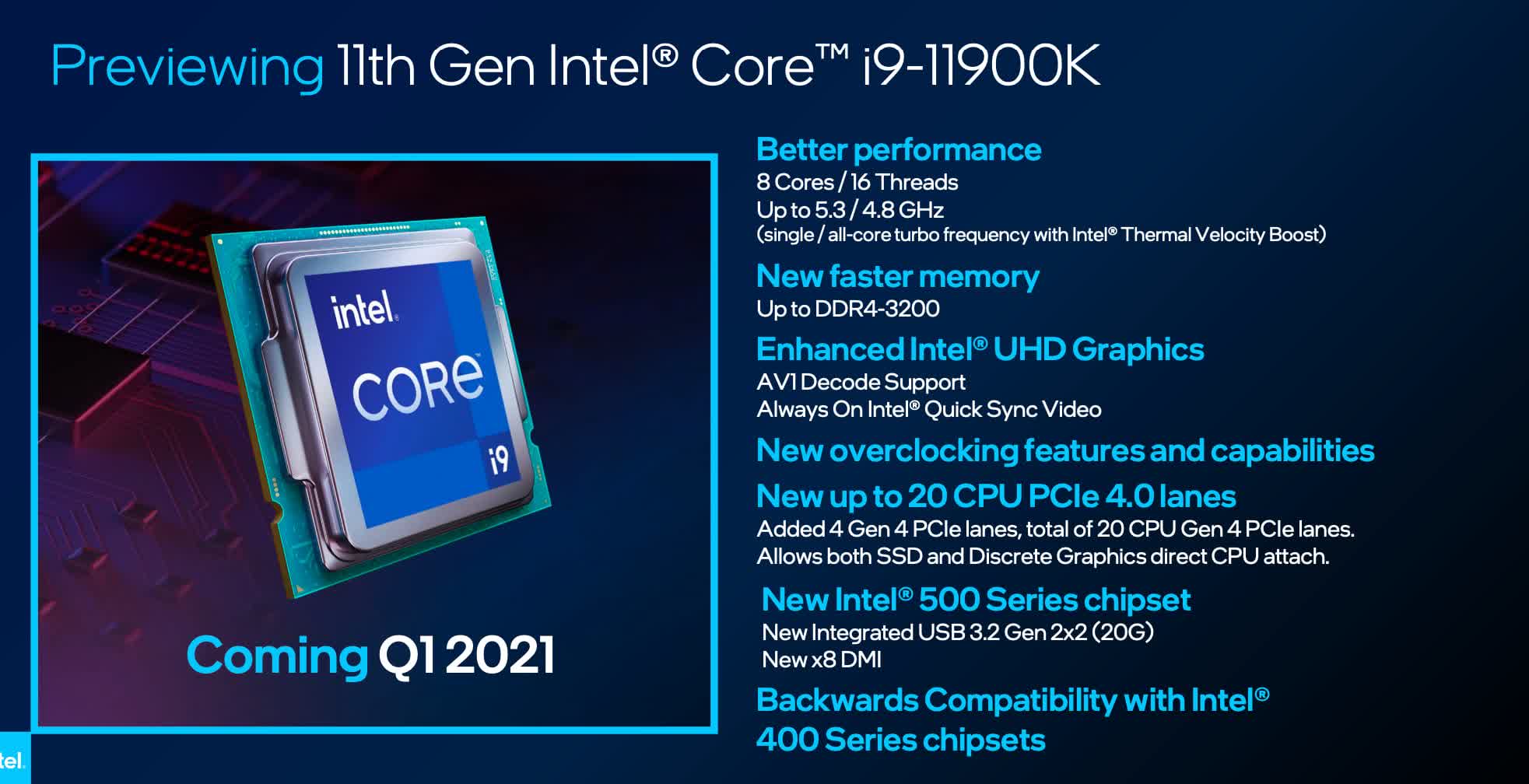
Intel is confirming a new PCIe configuration, with support for PCIe 4.0 and 20 lanes direct from the CPU. It's long been known that Rocket Lake will include PCIe 4.0 support, but it’s also nice to see more lanes.
We are lacking a number of specifics though. We don’t know how power hungry this sort of chip will be, especially at these frequencies. Generally when companies produce a new architecture which creates a larger CPU core, they fight the increased power requirements by shifting to a smaller process node. In many cases this can be even more efficient. But Intel doesn’t have this luxury, so the expectation is that the 11900K will be even more power hungry than 10th-gen parts core-for-core.
This leaves us with two explanations for why the 11900K is topping out at 8 cores instead of 10. One is that the power requirements would simply have been too high if they went with 10 cores at up to 4.8 GHz all-core. The other is that the larger core design would have occupied too much die space with a 10-core layout. This is something we’ll explore further when time comes.
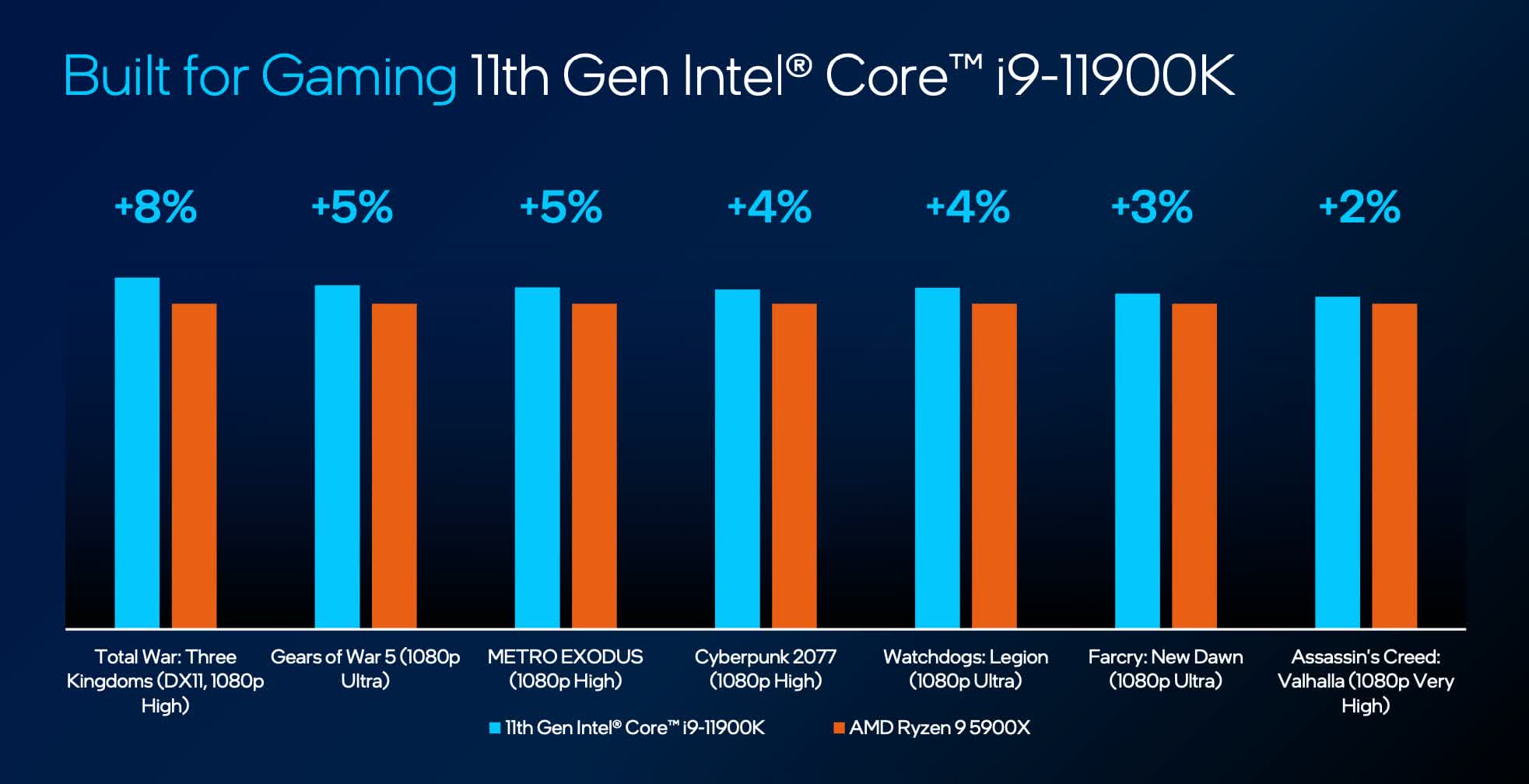
What’s clear about the Core i9-11900K is that Intel is basically giving up on competing at the top level of the productivity market, at least for multi-thread workloads. The strong focus and messaging around Rocket Lake is that of gaming. In fact, Intel even had some performance numbers of their own to show, where the 11900K was between 2 and 8 percent faster than Ryzen 9 5900X at 1080p gaming with high to ultra settings. According to the appendix, this testing was done with a GeForce RTX 3080 and 32GB of DDR4-3200 memory in a 4x8GB configuration.
While it’s nice to get performance numbers and a preview of what to expect, there's nothing particularly shocking here. Intel’s 10900K is roughly on par with Ryzen 5000 processors in gaming, so a Core architecture update at roughly the same frequencies should see Intel take the lead again for overall gaming performance.
There's also still a ton to play out here. A 5% performance margin is not earth shattering, so other variables like pricing -- and in today's market, availability -- will be key. We don’t think the 11900K could get away with being more expensive than a Ryzen processor with those sorts of margins. When things are tight, productivity performance and power consumption should also come into play, even for gamers, so we're very interested to see which direction Intel goes for with this line-up.
Intel Z590 motherboard platform
Along with 11th-gen processors, Intel is also announcing 500-series chipsets, although Rocket Lake is backwards compatible with 400 series boards. Intel hasn’t shared a lot of information around these motherboards and chipsets yet, however motherboard markers are expected to announce 500 series boards this week.
The two new features Intel lists are integrated USB 3.2 Gen 2x2 support, and a new x8 DMI, up from x4 with previous designs. This DMI upgrade is quite important, allowing better peripheral and storage connectivity through a wider connection to the CPU. With PCIe 4.0 devices and SSDs becoming more widely available, and many of those parts going to be attached to the chipset, giving more bandwidth through to the CPU is key for maintaining a high level of performance.
We suspect this will be one of the main differences between Z590 and Z490. While some Z490 boards will give 11th-gen processors access to PCIe 4.0 slots for GPUs and M.2 storage, Z590 should have increased chipset capabilities and support for more PCIe 4.0 devices. In a way, this could be like the difference between B550 and X570 on the AMD side, where both support PCIe 4.0, but X570 gives you better support. In addition to this, the general expectation is that B560 on the Intel side will now support memory overclocking, which could be an improvement to Intel’s budget friendly platform.
Intel Tiger Lake H35 and mobile announcements
Intel has announced quite a few mobile processors today, including new vPro stuff and a few Celeron and Pentium parts, but for the sake of simplicity, we're going to ignore those as we mostly focus on consumer, performance and enthusiast parts in our reviews. The most relevant launch today on mobile is Intel’s new Tiger Lake H35 line.
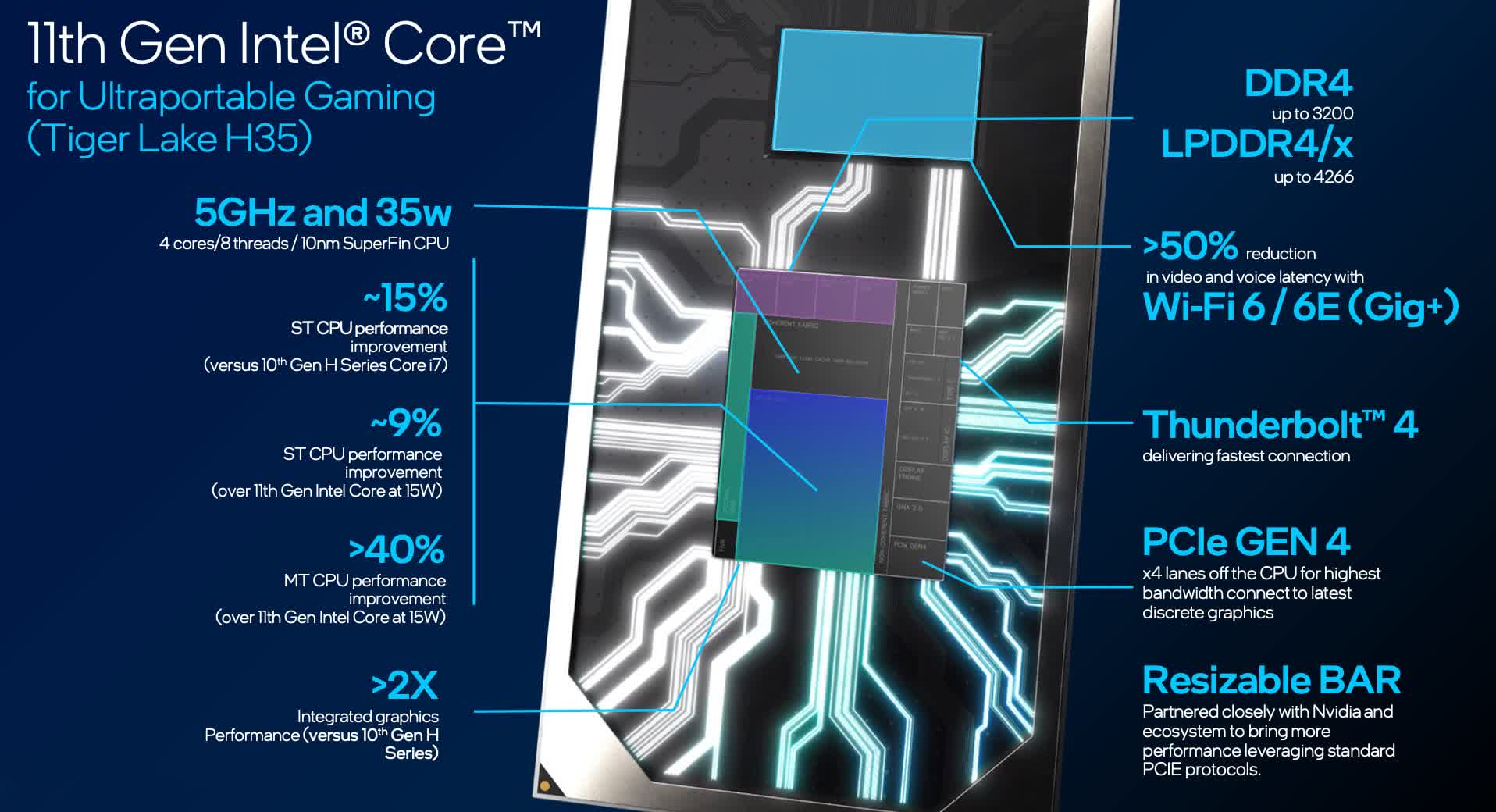
These are quad-core Tiger Lake processors, essentially the exact same silicon already being used for Tiger Lake UP3, but instead of power limits topping out at 28W, Intel are pushing it up to 35W.
Combined with the excellent single-thread performance Intel have achieved with Tiger Lake, the thinking is that these 35W-class CPUs will be suitable for “ultraportable gaming” in 15-inch chassis with 16mm z-height -- the sort of class of laptop we saw with the Asus ROG Zephyrus G14: 35W CPU, 65W-ish GPU in a nice compact body.
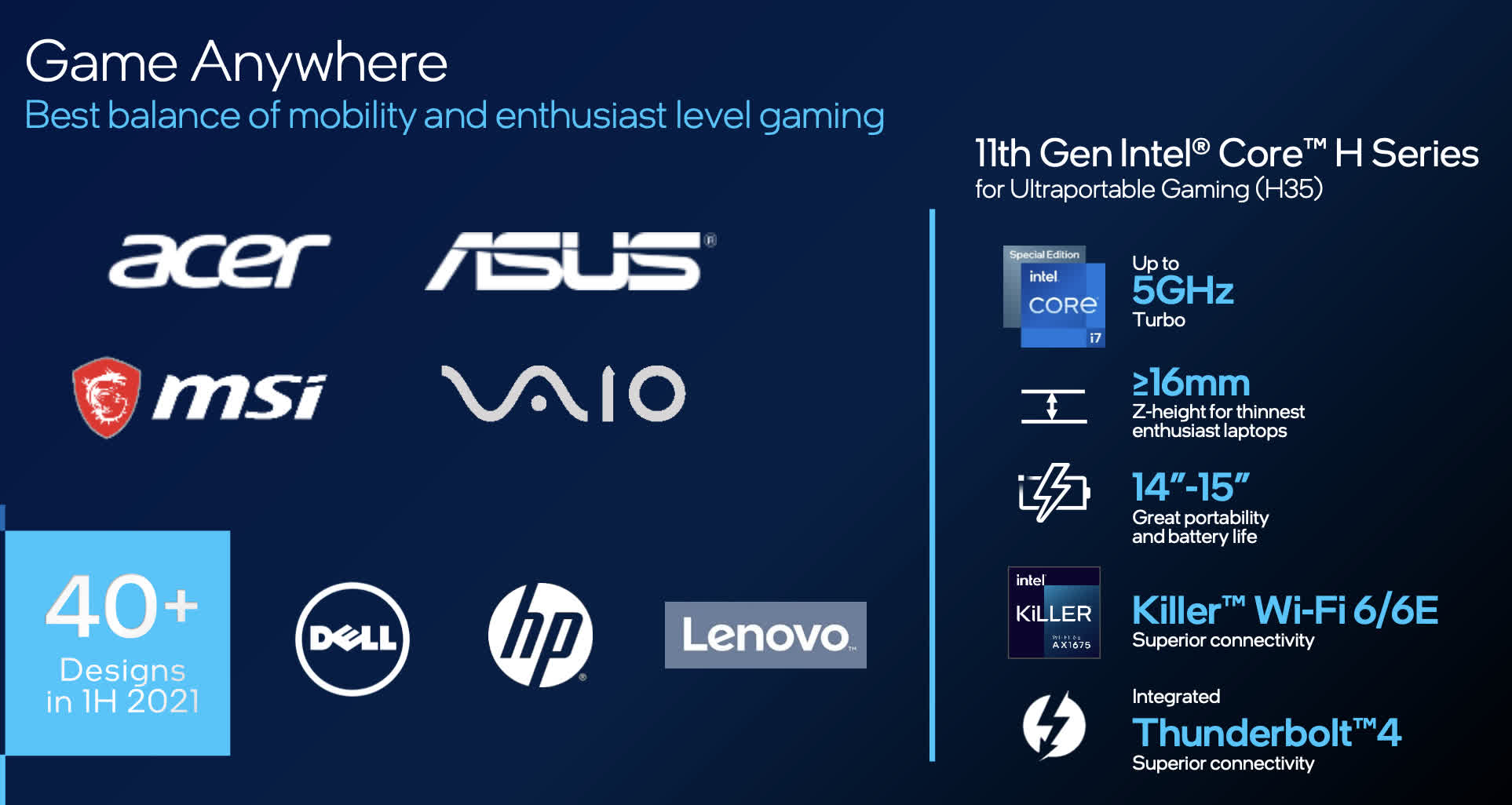
Something to consider though is the inclusion of just 4 CPU cores, so we don’t think we’ll see wide adoption outside of these slim gaming machines. And certainly that is Intel’s expectation, too, based on their presentation: in the short term, until we get 8-core Tiger Lake H designs down the track – which were confirmed today – Intel expects some more performance oriented laptop refreshes to use 10th-gen H-series along with Nvidia’s soon to be announced RTX 30 GPUs. The timing just hasn’t lined up perfectly for 8-core Tiger Lake silicon.
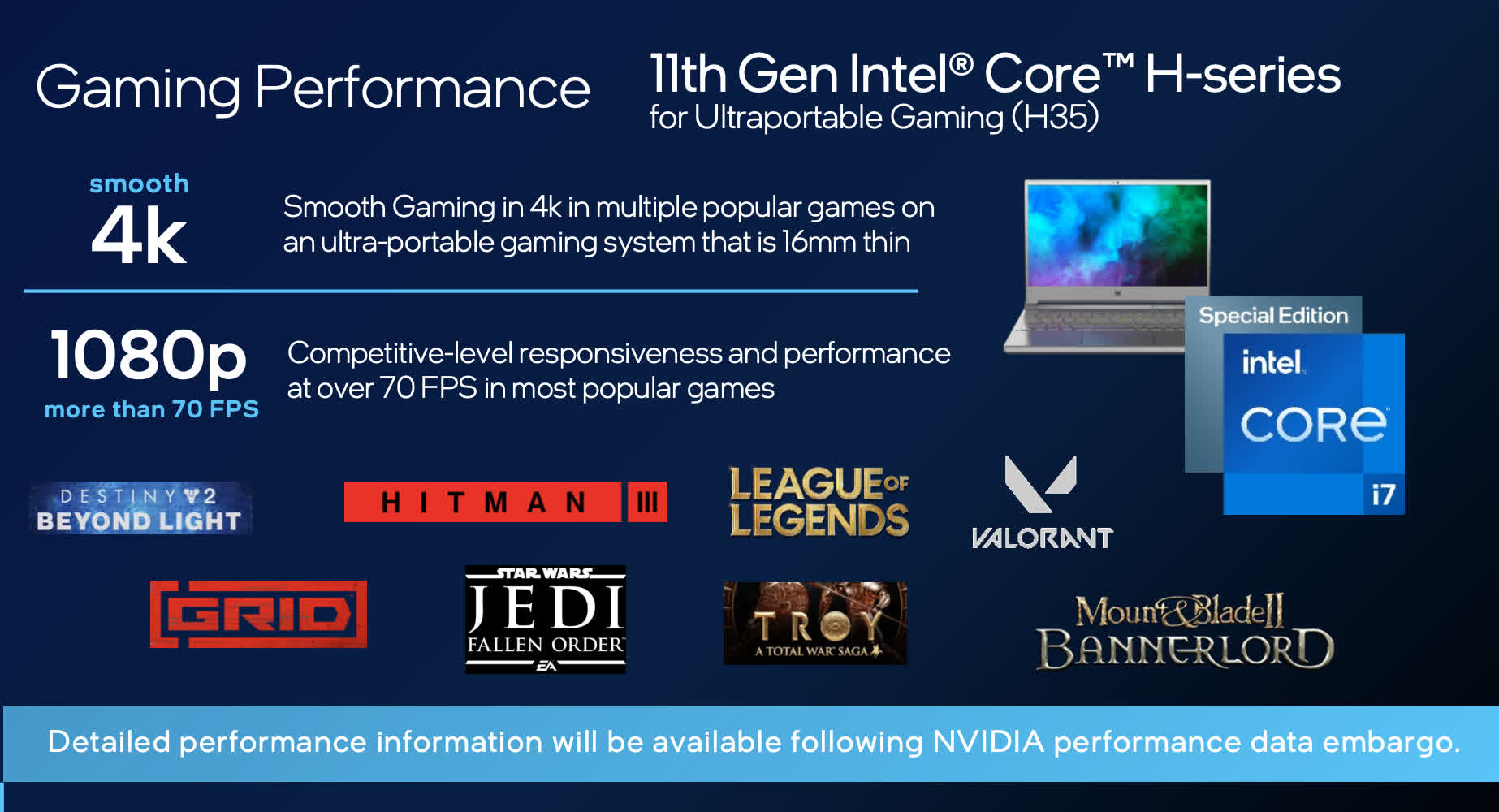
Intel’s Tiger Lake H35 series brings most of the features we’ve seen before with Tiger Lake U, such as PCIe Gen 4 and Thunderbolt 4. One of the limitations for gaming laptops will be just four PCIe 4.0 lanes, which will likely keep higher end discrete GPUs out of contention. However there’s DDR4-3200 and LPDDR4X-4266 memory support and also an interesting addition of resizable BAR support, which we're sure we’ll be learning about more over the coming months as more platforms bring support for this PCIe standard.
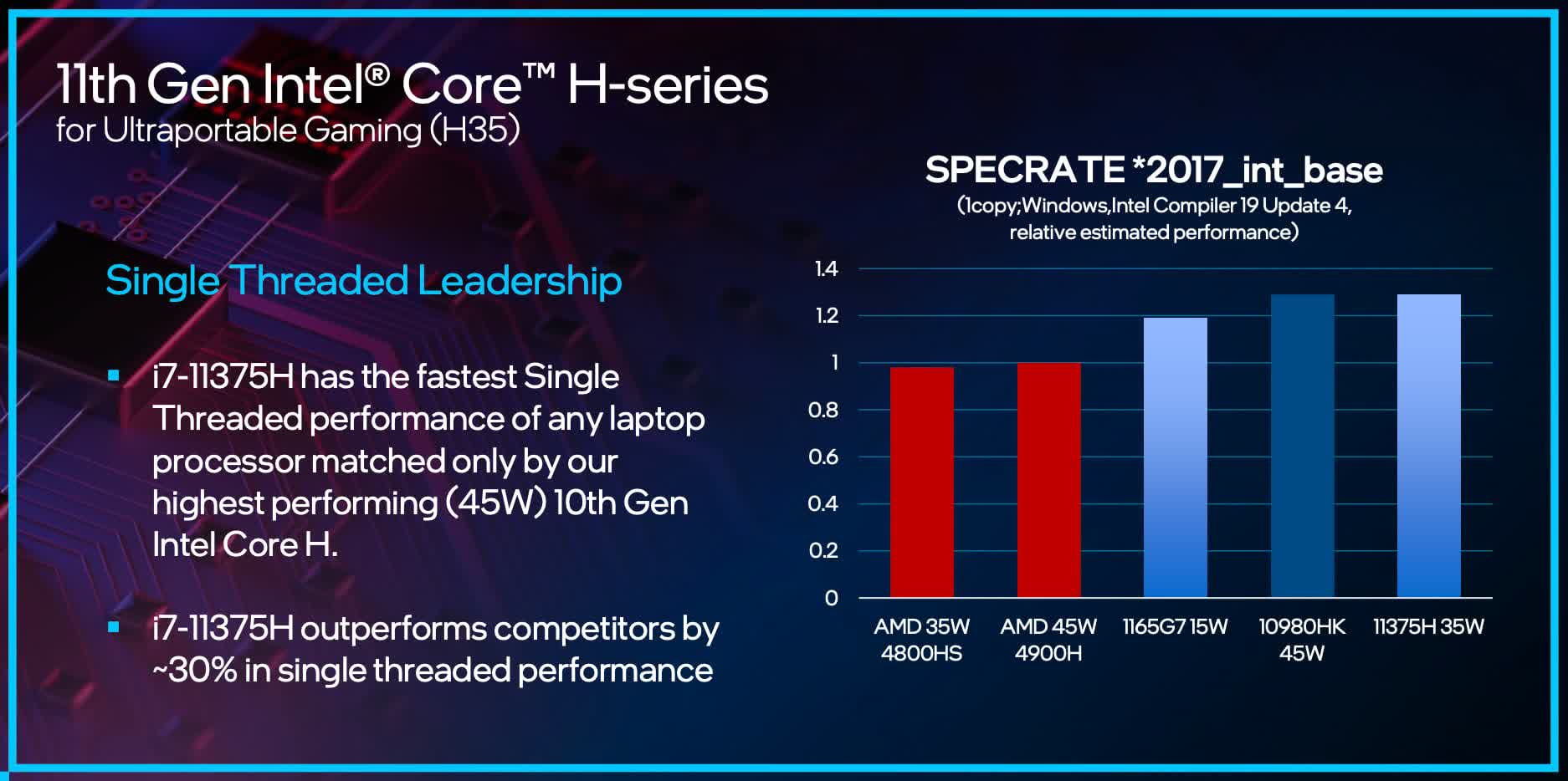
Intel is bringing 5 GHz to Tiger Lake for the first time, too. The Core i7-11375H Special Edition will feature a maximum single-core Turbo speed of 5.0 GHz with all their special boost stuff at play. The other chips in the series, the i7-11370H and i5-11300H top out at 4.8 and 4.4 GHz, respectively. All are four core, eight thread designs with base clocks in the 3 GHz range, with the i7 parts having 12MB of L3 cache and the Core i5 getting 8MB.
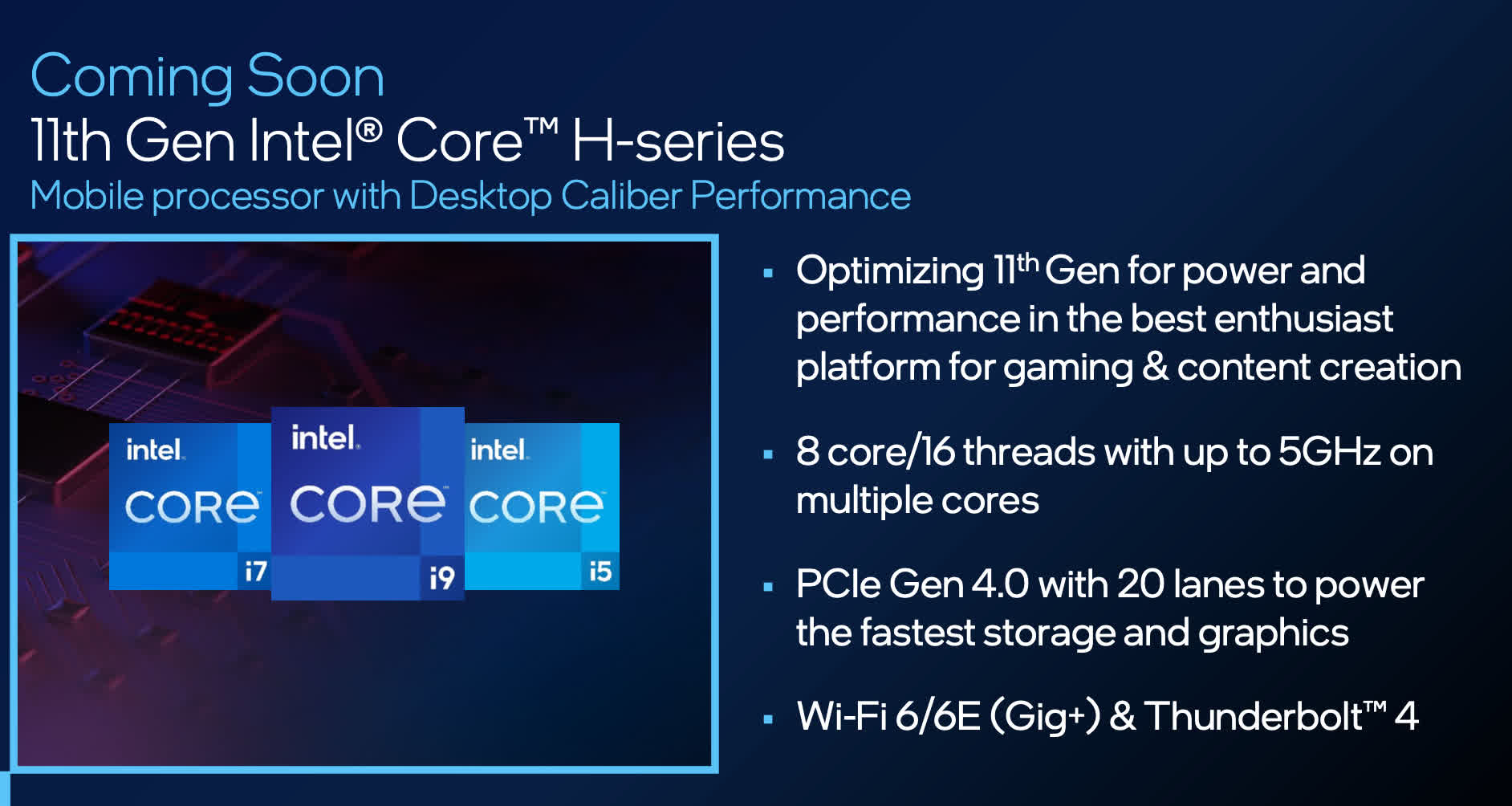
Intel have made several performance claims, including a range of comparisons between their H35 parts and existing Tiger Lake designs. They are expecting up to 15% better multi thread performance over 10th-gen H-series i7 processors, up to 40% better multi-thread performance than 11th-gen design at 15W, and up to 9% better single-thread than 15W Tiger Lake. The comparison to 15W Tiger Lake is interesting given that we know from our testing that Tiger Lake benefits a fair bit in both single and multi thread tests from the 28W configuration, so we're curious to see how much better the 35W spec actually is.
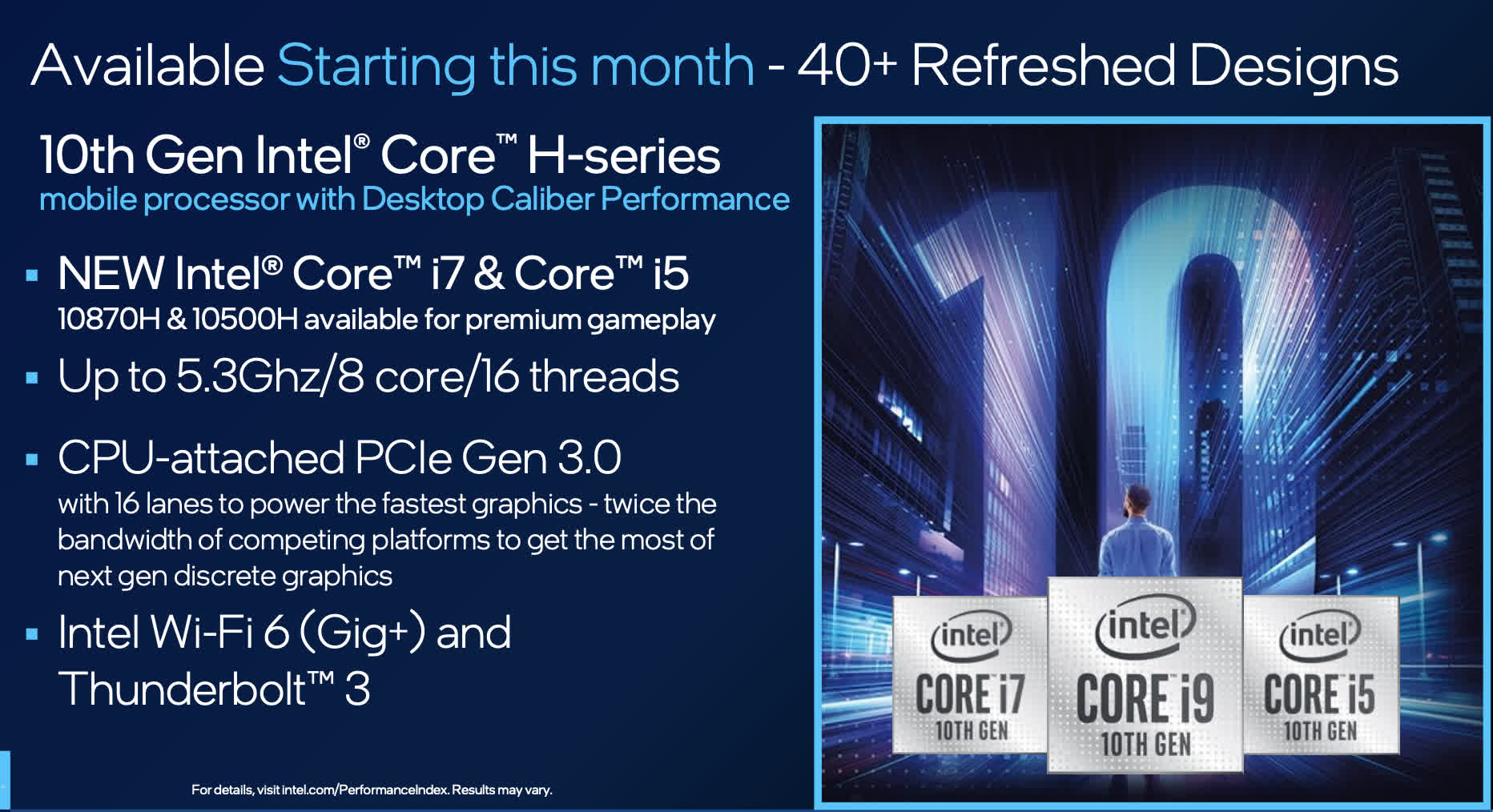
The other comparison Intel showed is between their 11375H at 35W compared to AMD’s Ryzen 7 4800HS and Ryzen 9 4900H, showing up to a 30% improvement to single-thread performance. Intel are claiming the best single thread performance of any laptop processor, however that's only one part of the story given the AMD processors listed, and the Core i9-10980HK, which are all significantly better for multi-thread performance.
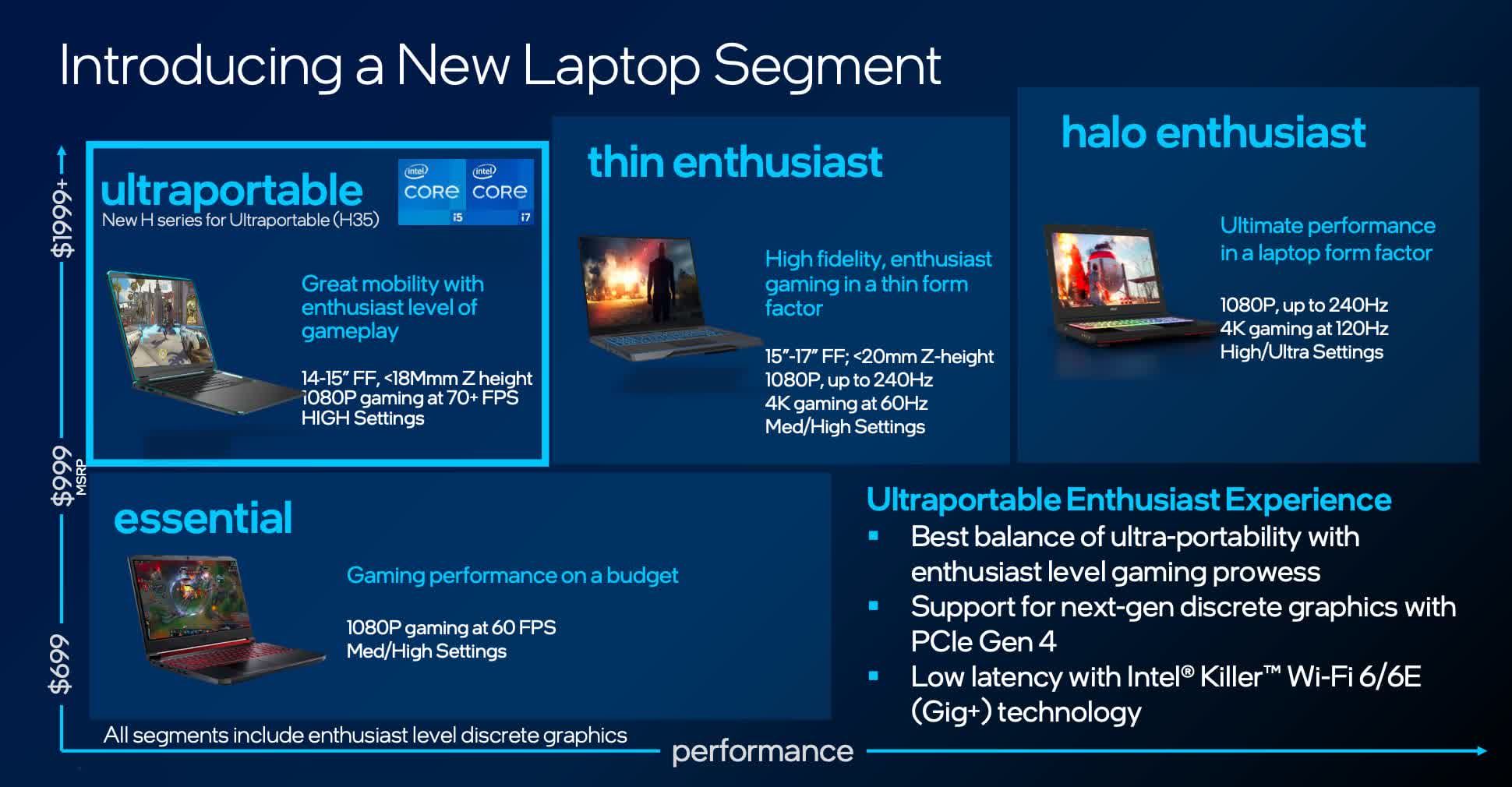
While there’s nothing wrong with this line-up and we’ve been quite impressed with the performance of Intel’s quad-core Tiger Lake processors, especially for low thread count workloads, this does feel like a stopgap launch. With AMD set to announce a more comprehensive suite of Ryzen 5000 processors shortly, including parts that we expect will significantly close the single-thread gap, this feels a lot like a "lets get in early to remind people we exist until 8 core Tiger Lake is ready" launch, than something that will be widely used across laptop designs.
In that sense we're intrigued to see where and when these processors will be used. So far from what we've been hearing from OEMs, it seems these chips will make it into mostly lower performance models. For most gaming laptop designs, the talk is either a short term refresh on 10th-gen, or waiting for 11th-gen 8 core designs, or using Ryzen 5000.
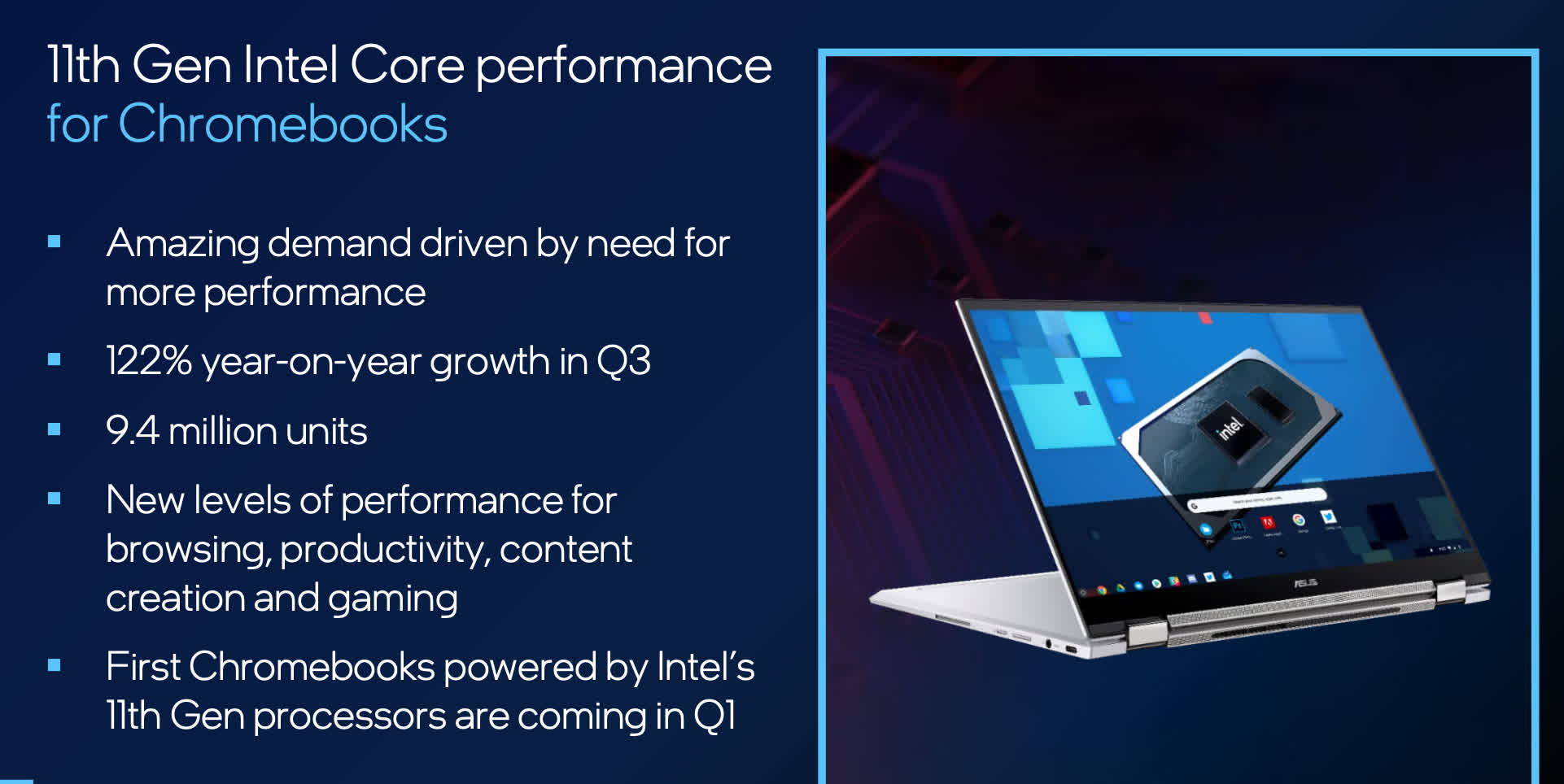
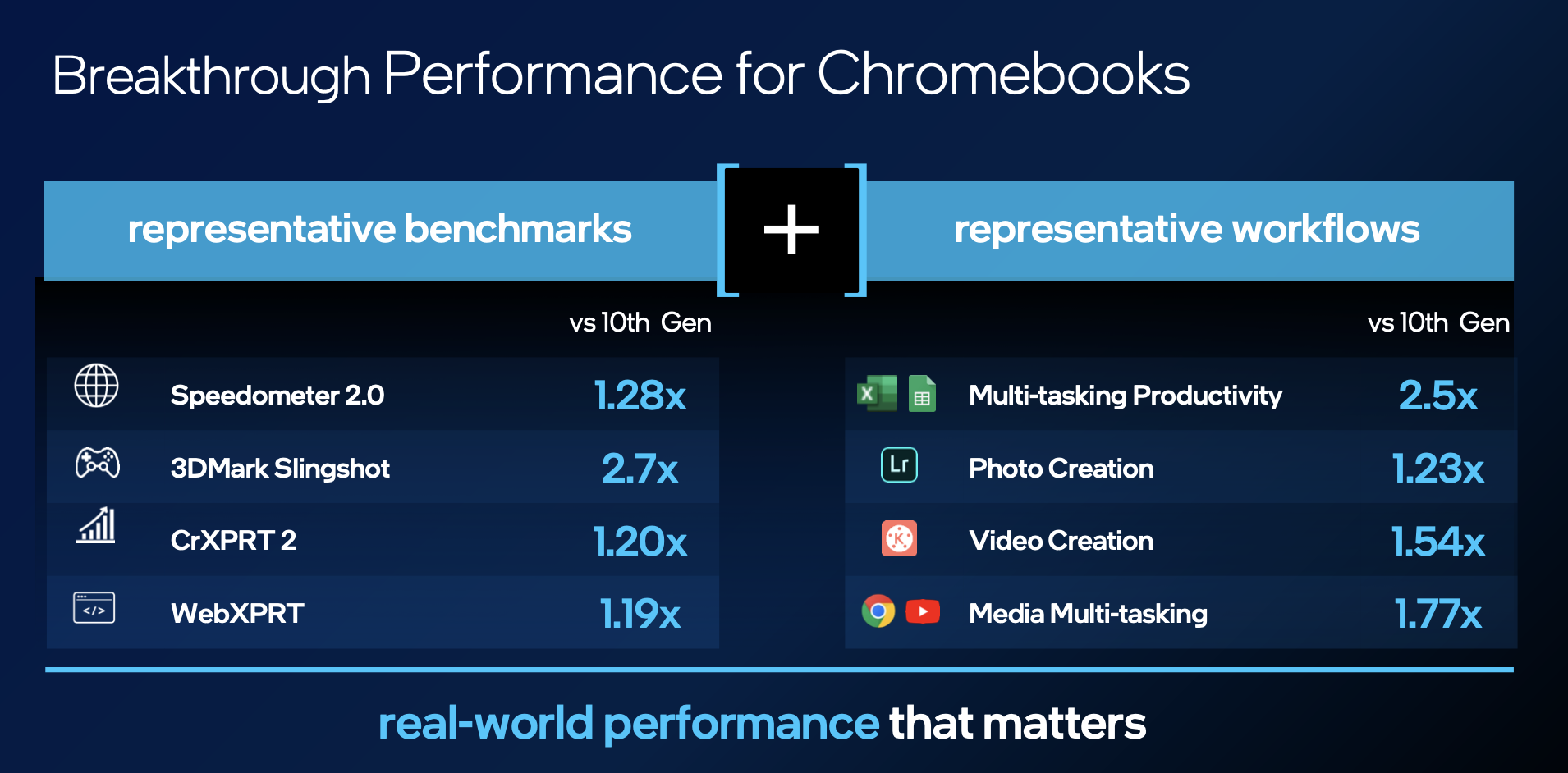
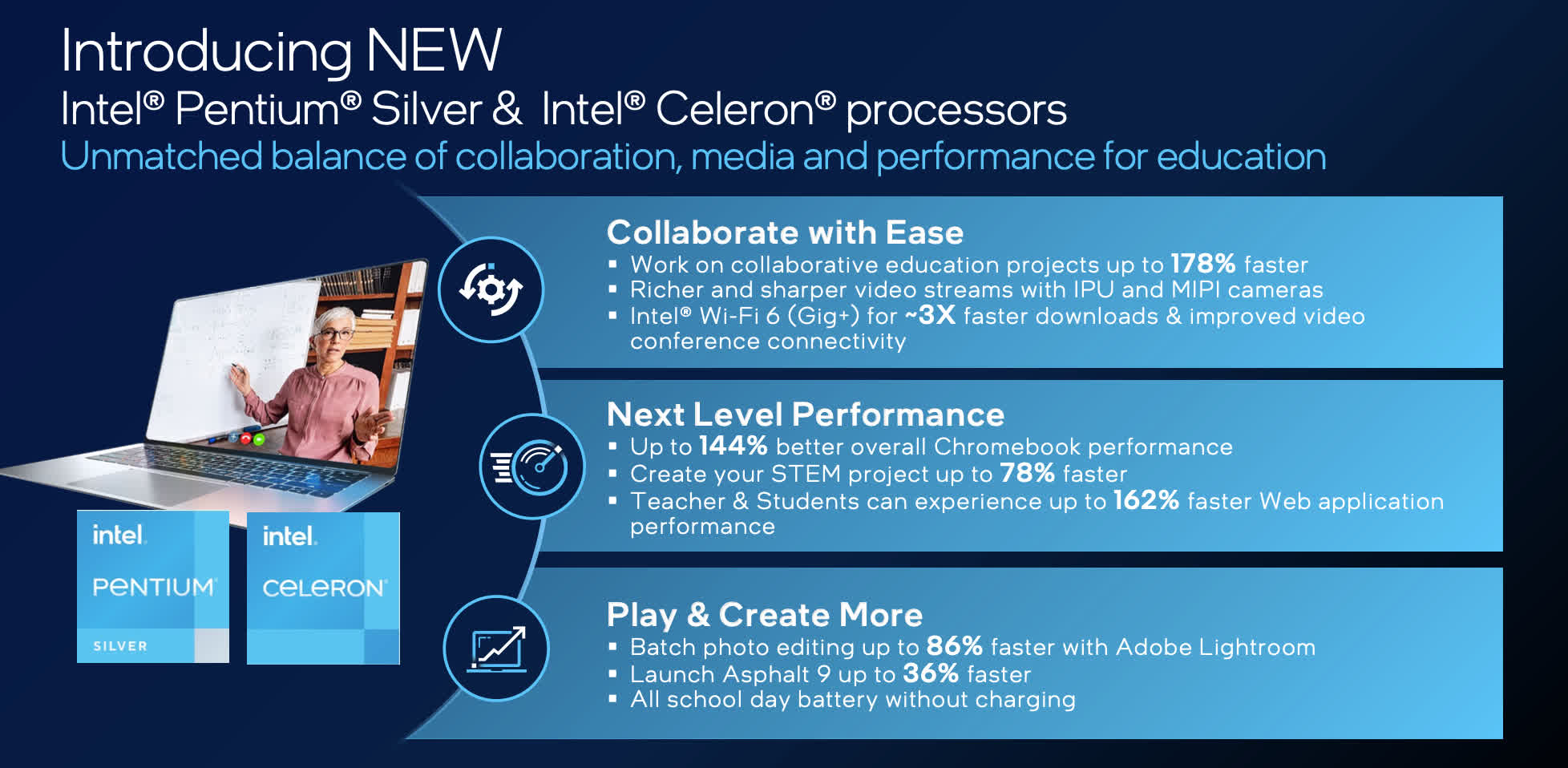
Intel’s other CPU announcements touch on stuff like vPro processors which are business oriented, and there's also a set of new Pentium and Celeron chips, the highlights of which you can see above.
That’s it for today’s Intel news and announcements. We see a holding pattern type reveal and certainly smaller steps that put them in contention with AMD’s new CPUs and Nvidia’s new GPUs announcements expected this same week. We're definitely interested in testing out the H35 processors and seeing how they stack up, but ultimately the big important stuff from Intel is still a few months away.
https://www.techspot.com/news/88226-intel-teases-core-i9-11900k-beating-ryzen-high.html